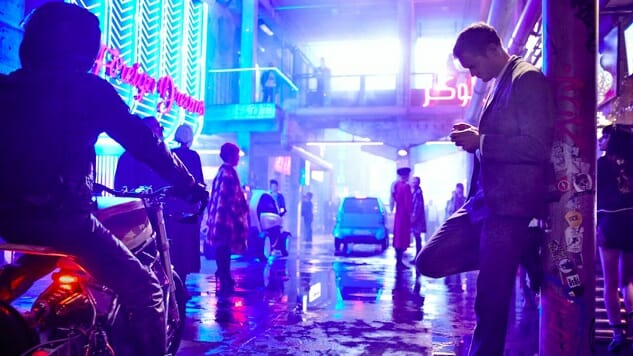Mute

Make no mistake, it has been a long, exhausting few years for director Duncan Jones. Beyond the loss of his father, the legendary performer David Bowie, he also mourned the passing of a childhood nanny who served as a motherly figure, while celebrating the birth of his first child at the same time. All of these events served as the backdrop to the making of Mute, his new Netflix film, a concept 16 years in the making, originally intended to be his directorial debut.
But things didn’t work out that way. Mute was a project continually shelved and pushed back. It continued brewing in the back of Jones’ mind as he made 2009’s much-lauded Moon with Sam Rockwell, cementing his status as an up-and-coming auteur in the lost art of “hard” science fiction filmmaking. It was still there when he tested the waters of studio filmmaking with the surprisingly deep Source Code in 2011, ably fusing profound sci-fi themes to what was sold to the multiplex crowd as an action movie. And it was still there in 2016, when his foray into big-budget blockbusters, Warcraft, bombed at the U.S. box office, only to be salvaged by massive Chinese ticket sales. In the course of only three films, Jones had gone from “indie visionary” to “promising studio director” to “failed big-budget prospect”—the Josh Trank Special, if you will. And still, he was waiting on Mute.
-

-

-

-

-

-

-

-

-

-

-

-

-

-

-

-

-

-

-

-

-

-

-

-

-

-

-

-

-

-

-

-

-

-

-

-

-

-

-

-








































